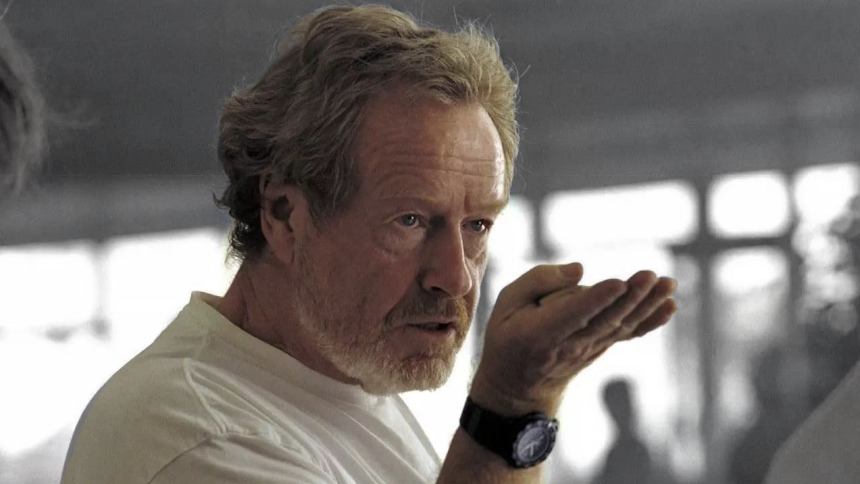Sound And Vision: Ridley Scott

In the article series Sound and Vision we take a look at music videos from notable directors. This week we take a look at Roxy Music's Avalon, directed by Ridley Scott.
Ridley Scott started out as a director of television commercials, but to my knowledge he only directed one music video, the one for Roxy Music's Avalon. The music video itself is deceptively simple: a man, a woman, a castle, some slight symbolism like hawks and roses. It shares a certain grandiosity with some of Scott's historical and science fiction epics, though, where even the simple elements are used to a bombastic extent. The camera not only zooms in on the woman, the world seems to light on fire when she turns her face to the audience. This is a romantic spectacle not that far removed from the way Ridley Scott frames the love-interests in Blade Runner or his flights into historical romance.
Ridley Scott is sometimes accused of being a cold and calculated director, and when talking about romance movies, you would never necessarily mention Ridley Scott as one of the first examples. But at the core most of the films Scott made feature some level of romance, or are about the way that men and women interact. Even his least heteronormative movies, like Thelma and Louise, G.I. Jane or The Last Duel, are in some ways a straight man's vision of queer relationships, sexism and sexual violence against women. That is not to say that these films are bad, or take a wrong turn, but they don't feel necessarily lived-in.
Whereas when Ridley Scott stays closer to his own experiences, you get romance that is as big and bold as his historical battles. There are many moments in Blade Runner that are cold and calculating, in the way the camera glides over the harsh dystopian architecture. But when Rachael enters the room, something in the world of Blade Runner shifts. It is the same effect we see in the Avalon music video. We also see it in scenes in Gladiator, where the death of Maximus' wife and children are used as the catalyst for a big part of the story, but where the romance is literally portrayed as heaven; a safe haven; a paradise lost.
That Ridley Scott uses the song Avalon, of Roxy Music, itself from a concept album about Irish myth and an idyllic afterlife, is telling. Only Ridley Scott would envision that afterlife as a hotel where your loved one lives. Ridley Scott reveres women, and if he can be accused of the male gaze in his movies, it is from a place of admiration to an almost religious extent. Avalon brings into focus Scott's use of love interests. He isn't as cold a director as people seem to think. He is a romantic at heart.






